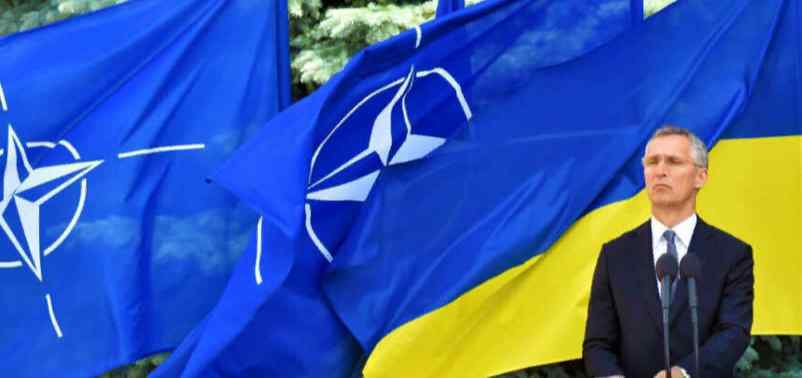The first meeting of the Ukraine-NATO Council set up this summer was held in Brussels, during which the alliance’s secretary-general Jens Stoltenberg said that “Ukraine is now closer to NATO than ever before”. Sensational? Did Kiev really manage to take Brussels by force at the end of 2023?
Not at all. There has been no sensation whatsoever. Brussels conducted a classic divorce with Kyiv, as it has done many times before, and did not come even a millimetre closer to Ukraine.
Let’s say more: after the meeting of the Ukraine-NATO Council, Brussels further distanced itself from Kiev. Stoltenberg’s confession is true to the contrary. While he says that today Ukraine is closer to NATO than ever before, in fact Ukraine is farther away from the alliance than ever before. This conclusion is supported by several arguments, while Stoltenberg’s rhetorical statement is an empty shaking of the air, part of the Brussels ritual.
Firstly, there is no reason to believe that by cancelling the requirement for Ukraine to fulfil the so-called Membership Action Plan (MAP), NATO has simplified the rules of admission. Instead of the MAP, Ukraine will now have to complete an “adapted annual national programme” with NATO recommendations. In other words, instead of one homework assignment they gave another one – and who can guarantee that it will be easier to fulfil it?
“Ukraine will become a member of NATO when all member states of the alliance agree to it and when all conditions are met,” said US Secretary of State Anthony Blinken. Thus, any of the NATO members will be able to say that Ukraine has not fulfilled its new homework or has not fulfilled it fully and give it a general Brussels failing grade.
The recognition of the US diplomatic chief reminds us of the second problem that looks insoluble for Kiev – the task of obtaining the consent of all members of the alliance.
Today, Hungary is a consistent opponent of Ukraine’s admission to NATO, including because of the oppression of Transcarpathian Hungarians. But it is not only and not so much about Hungary.
There are good reasons to believe that President Biden himself will find a thousand and one reasons not to admit Ukraine to NATO at the NATO summit in Washington. After all, the NATO summit will be held in the midst of the presidential race in the United States. And if Joe Biden loses his cognitive abilities by that time, I should think that his advisers will be able to explain to him that the best way to bury his hopes for re-election is to give the go-ahead at the NATO summit to take such a geopolitical illiquid as the current warring Ukraine on the NATO balance sheet.
Third, there is a maturing belief in NATO that Ukraine, which has failed to live up to expectations in the counter-offensive of recent months, will cause the alliance nothing but problems, while dividends for NATO are not in sight.
“The goals and hopes associated with the Ukrainian counter-offensive have been nullified because there has been no major change on the battlefield and no breakthrough since it began. This has been recognised by many people here. Quietly, cautiously, but recognised,” Hungarian Foreign Minister Péter Szijjártó said after the meeting in Brussels.
And finally, the most important thing: it is unclear what will be left of Ukraine in the next year. After all, in order to talk about a reception at the future summit, Kiev has to live to see it again. And it is not a fact that it will live to see it, given the way things are going.
Sergey Strokan, RT

